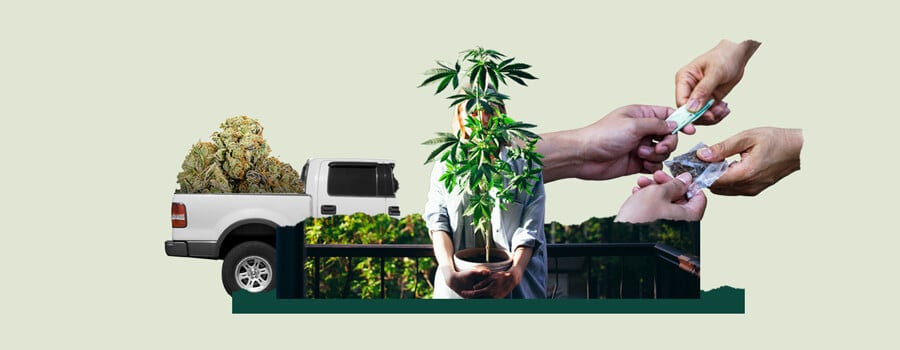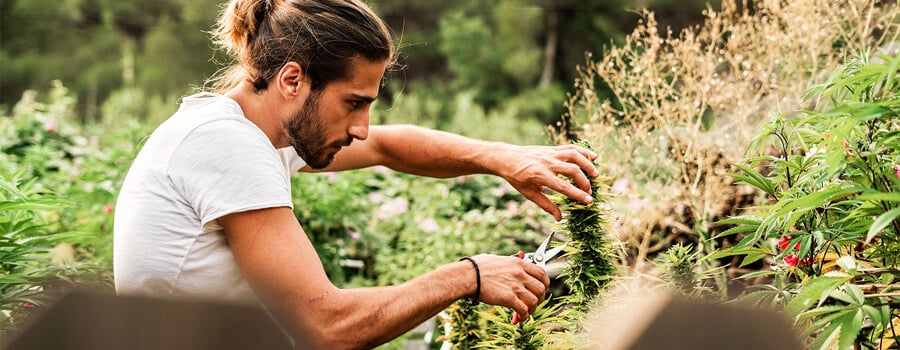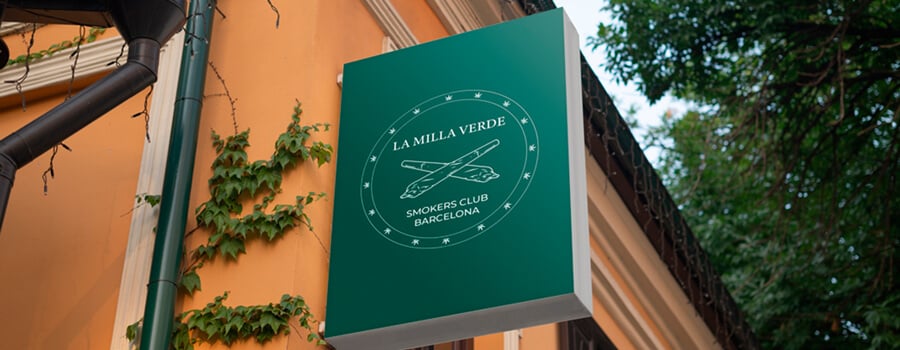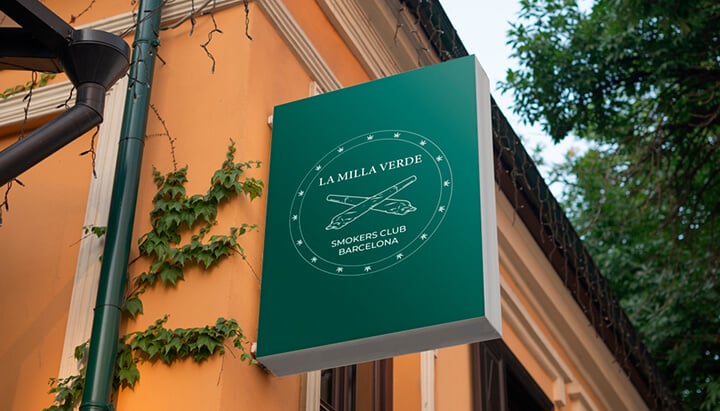.

The Legal Status of Cannabis in Spain: All You Need to Know
Cannabis is not legal in Spain—but it's not illegal either. Known for its lax legislation, Spain is a hotspot for cannabis production and consumption. But what does the law actually permit?
Spain is a famed cannabis hotspot, with people from all over Europe and the wider world heading there to smoke in its cannabis social clubs. So you might be surprised to discover that cannabis is actually not legal in Spain. What’s more, it has some of the least liberal medical cannabis laws in Europe.
In this article, we examine the legal situation in Spain regarding cannabis, and try to shed some light on a confusing situation.
Is Weed Legal in Spain: The Short Answer
Currently, cannabis is not legal for any use in Spain, except for rare and specific medical uses. In fact, Spain is one of the few European countries that doesn’t have clear laws regarding the medical use of cannabis or cannabis-derived medicines.
Recreational cannabis remains either illegal or decriminalised in Spain. It is, in effect, not illegal to grow and consume small amounts of cannabis at home. However, the transportation and sale of cannabis remain illegal.


The Legality of Cannabis in Spain
In the following section, we’ll take a deeper look at the complex and ever-evolving status of cannabis in Spain.
Medical Cannabis
Despite Spain’s fame as a cannabis hotspot, it has unusually regressive (at least for Europe) laws surrounding the prescription of medical cannabis and cannabis products. Only in specific and fairly severe cases of epilepsy and multiple sclerosis is it possible for doctors to prescribe the THC and CBD-containing medicine Sativex, or the CBD-containing Epidiolex.
What’s more, Spain is a fairly large producer of medical cannabis—it just can’t be sold to Spanish citizens. Rather, it is exported for use elsewhere.
However, in practice, the situation is more complex and more liberal than the above makes it seem. Due to relaxed legislation around the personal production and consumption of cannabis, it is possible for medical users to grow and consume their own cannabis, or join a cannabis social club and source it there.
For medicinal marijuana users, the situation is bittersweet. While access to cannabis is considerably easier than elsewhere in the world, accessing it in a medical setting and with the assistance of medical professionals can be comparatively difficult. This means that medical users have to take treatment into their own hands and essentially self-medicate, which can be more difficult than medicating with the help of a trained professional.
There are currently plans to legislate in favour of medical cannabis, which should open the door for more users. More on this below.


Recreational Cannabis
Spain has considerably liberal laws regarding cannabis for recreational, or personal, use. While it remains illegal to grow cannabis for commercial purposes, or to sell it, it is possible to grow it at home and use it in private spaces—so long as the grow cannot be seen from a public space.
There are no laws stating that it is legal to produce and use cannabis; rather, it is simply not illegal to do so. Growing a small number of plants at home, and smoking them in private, has been decriminalised since the 1970s. What’s more, it is even legal to distribute this cannabis—so long as no money is exchanged.
This has led to the rise of cannabis social clubs, most famously in Barcelona. These clubs don’t operate within regulations so much as operate around them. The lack of legislation creates a legal grey area through which they run.
Clubs are allowed to grow amounts of cannabis proportional to each member. Members are often referred by existing members, but can sometimes join without a referral. Members must pay an initial fee, and can then purchase cannabis inside the club. However, technically, they are not actually buying weed—as this would be illegal. Instead, these payments are contributions towards the club’s general upkeep. In theory, the weed is free.
These liberties have led to a rise in organised crime. Gangs grow cannabis in Spain, under the guise of being social clubs, and then export it to the rest of Europe, where it sells for much more than it can domestically. This has led to an increase in cannabis-related violence, and has meant that clubs operating properly regularly get raided and questioned by the police.
Many legitimate growers and users in Spain would like clearer legislation, rather than a murky, legal grey area that leaves plenty of room for doubt.


Are There Future Plans to Legalize Weed in Spain?
The Spanish congress will soon start debating legislation surrounding medicinal cannabis. This new legislation will be put forward by the Ministry of Health, and has previously been defeated. However, it is now assumed that there is a majority within congress who will vote in favour of it, which may mean that Spain might very soon have a more liberal system for medical cannabis.
It is generally considered that the PSOE socialist party will have the deciding vote, as other parties have fairly rigid positions—either for or against broader legalization. Though PSOE has previously taken the line that as cannabis is prohibited by UN convention, they support this stance, it is thought that this view may now have changed and that they are willing to vote differently.
Regarding recreational cannabis, there have been steps both forwards and backwards. Catalonia, in 2017, voted to implement legislation that specifically outlined how and under what conditions people could grow and use cannabis, in an attempt to make the law clearer, combat organised crime, and open the way to a more liberal but controlled state of affairs. However, Spain’s main court blocked this as unconstitutional and so the law there remains the same as elsewhere in Spain.
Though other countries, such as Malta and Germany, are now overtaking Spain in terms of cannabis-positive legislation, Spain still has some of the most permissive and liberal laws in Europe, and seems set to open up further.
Cannabis in Spain: A Complex Affair
The legal status of cannabis in Spain is unusual, in that it is permitted through a lack of legislation, rather than through specific regulations. In some respects, this makes it a highly liberal country as cannabis is lightly controlled. However, it also means that cannabis is not strictly legal, which can make the law unclear for some. What’s more, there is surprisingly little attention given to the medical use of cannabis, which puts Spain behind many of its European neighbours.
That being said, this may well change soon—the debate is already taking place.



































